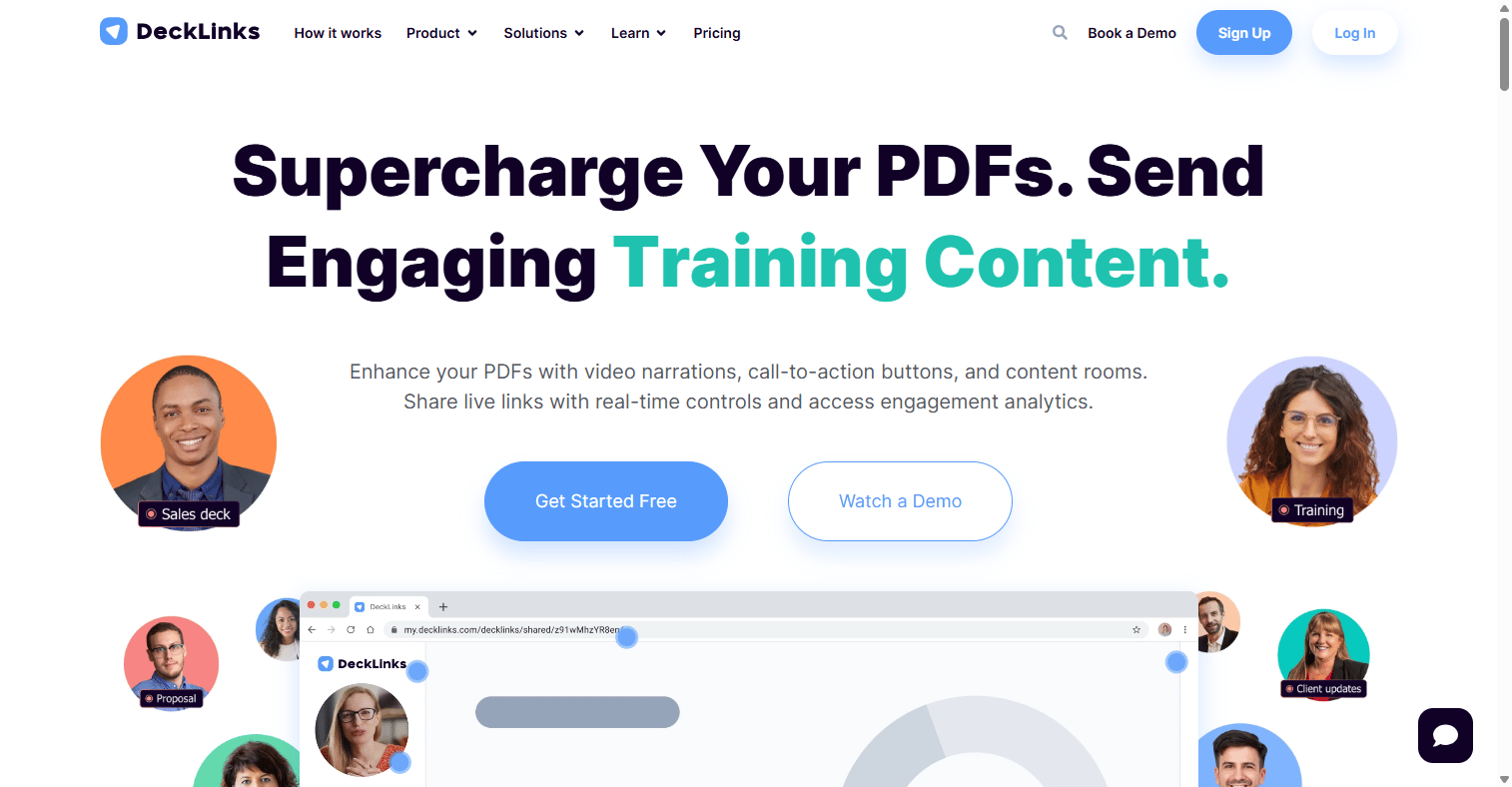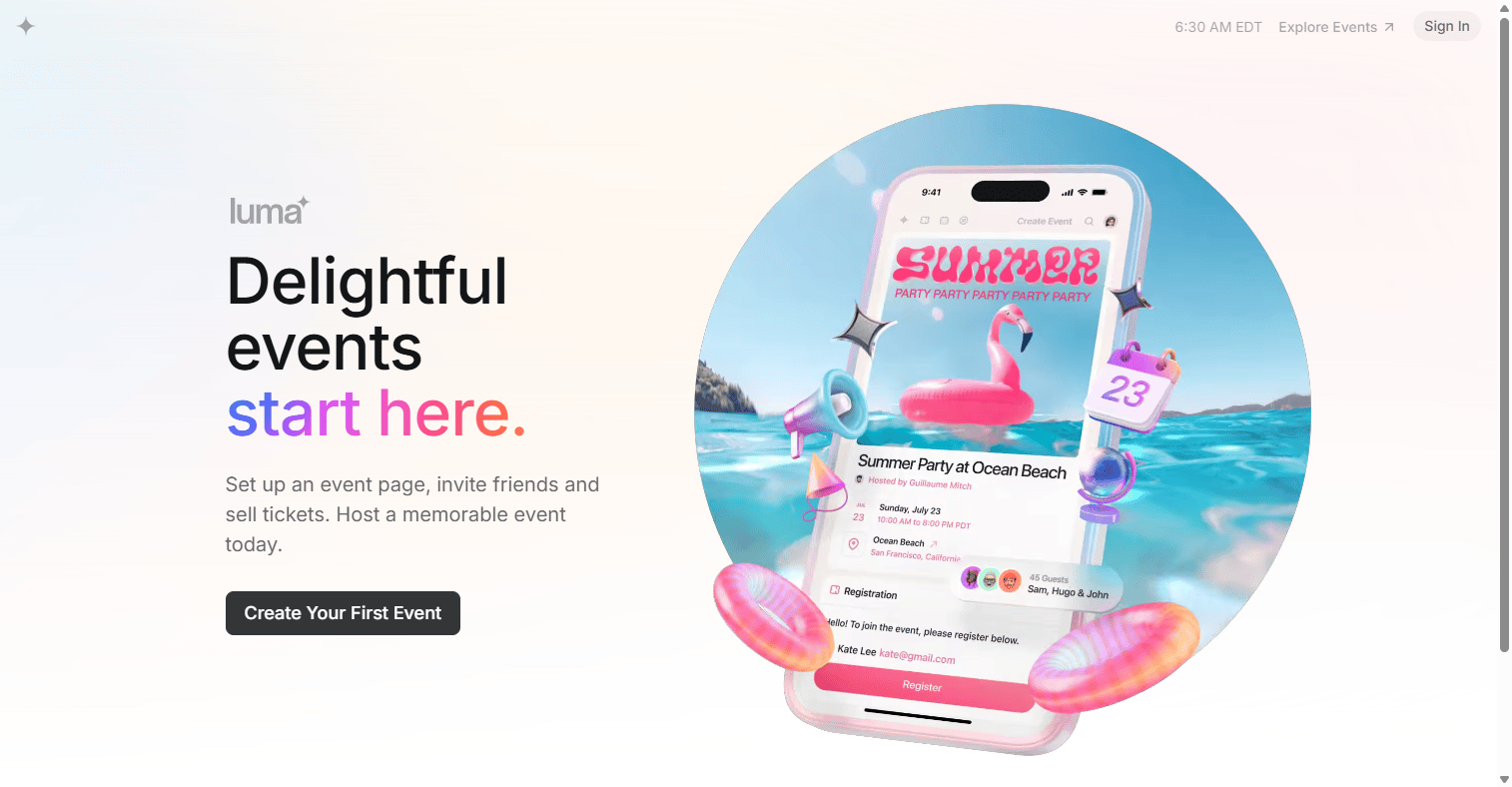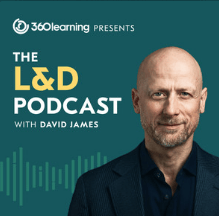|
“The day I decided that my life was magical, there was suddenly magic all around me.”
– Marabeth Quin
Whew—what a stretch! Between recent conferences in DC and Toronto, launching the book (finally!), and a couple of soggy weekends cheering on my daughter at softball tournaments, it’s been a bit of a blur. This week? Things are looking (blissfully) quieter. I’m hoping to catch up on all the accumulated to-dos—including some much-needed landscaping after evicting a family of skunks who decided to Airbnb under our front porch. Time to rest, recharge, and not pack a suitcase for once.
Thanks for reading!
|
|
|
👆 Last Week’s Most Clicked
StreamAlive
A chat‑powered audience engagement tool to make live presentations more interactive.
🎶 What I’m Listening To
Caamp is a great local band that I got so excited about last week, I forgot to include the link to their music.
|
|
|
sponsored
Start strong in instructional design with your go-to expert guide
Good design starts with smart guidance! This notebook includes everything you need to launch your ID career — from foundational checklists to creative tips that help turn your first project into an eLearning masterpiece.
|
|
|
📰 News & Notes
From Guesswork to Simulation: How AI Learner Personas Could Transform Instructional Design
Rundown: Dr. Philippa Hardman highlights a major shift in L&D: designing learner personas with AI-simulated data, not gut instinct. By feeding structured data into advanced models, IDs can predict how diverse learners behave—doing so faster, cheaper, and more reliably than traditional methods.
The Context: Recent studies show AI-crafted learner personas outperform manual assumptions. Hardman cites research proving AI can accurately predict learner actions and needs. Embedding AI personas into design workflows lets instructional designers craft tailored learning journeys at scale—without needing endless live interviews or focus groups.
Why it Matters:
- Smarter Design: Personas are data-driven, not guesswork.
- Faster Turnaround: AI simulates dozens of learner types in minutes.
- Cost-Efficient: Cuts down on manual research and allows rapid iteration.
For instructional designers and L&D leaders, embracing AI personas means more targeted, adaptive, and scalable programs. Say goodbye to one-size-fits-all and step into evidence-rich, learner-centric design.
If your learner personas were built from real behavioral data—not assumptions—how would it change the way you design learning experiences?
|
|
|
Embracing Productive Failure: Why Getting It Wrong First Might Be the Right Approach
Rundown: Productive Failure, developed by learning scientist Manu Kapur and detailed in his book "Productive Failure: A Pedagogical Framework for Learning Through Generation and Feedback," flips how we teach. Learners tackle tough problems before instruction. The struggle isn't a setback—it sets the stage for deeper, stickier learning.
The Context:
In L&D, this means leading with challenges—case studies, open tasks, or real-world simulations—before giving solutions. Learners make guesses, get things wrong, then receive clear instruction. This primes mental models, builds curiosity, and deepens later understanding.
Why It Matters:
- Stronger retention: Getting it wrong first makes feedback more powerful and memorable.
- Better transfer: Learners apply concepts more flexibly across contexts.
- Boosted resilience: Safe-to-fail moments build learner confidence and problem-solving skills.
L&D teams should trade polished lectures for thoughtful struggle. Because when learners fail early, they learn deeply.
What if the biggest barrier to deeper learning in your training isn’t what learners don’t know—it's that we never let them get it wrong first?
|
|
|
AI Fluency: The AI Fluency Framework
Rundown: Anthropic’s AI Fluency is a 3–4 hour course that teaches professionals how to collaborate with AI safely and effectively. It breaks down AI collaboration into three modes—Automation, Augmentation, and Agency—and builds skill in four core areas: Delegation, Description, Discernment, and Diligence.
The Context: As AI tools become embedded in everyday workflows, fluency is no longer optional. But using AI isn’t the same as working with it. This course targets that gap—teaching people how to prompt, review, and ethically engage with AI systems.
Why It Matters: L&D leaders need to model intentional AI use. This program equips teams to build smarter content, coach more effectively, and embed trust into AI-driven learning. It’s a practical step toward responsible innovation in education.
Which 'D' does your team rely on most? Which needs more focus—and what’s the impact?
|
|
|
sponsored
Make a positive impact on working and learning with AI
Discover how JoySuite’s AI-powered platform can help you centralize documents, accelerate information discovery with context-aware search, and provide instant answers with a virtual expert.
Join Chris and Dan on Wednesday, July 16 @ 1 pm ET | 12 pm CT | 10 am PT and see where the future is heading!
|
|
|
🧰 Tech Tools & Tips
If tools are your jam, check out my Work Smarter newsletter.

Deck Links
Enhance PDFs with video, CTAs, & content hubs—share live links & track real-time engagement
|
|

Luma
Easy to craft, run, and analyze engaging events—whether in-person, virtual, or hybrid.
|
|
|
|
sponsored
Beyond Completion Rates: Measure Real Training Impact
Stuck with completion rates and smile sheets that don’t really show the impact of your training program? Join us on July 2 at 9:00 AM (ET) for an online masterclass with Roy de Vries and Will Thalheimer, a leading expert in learning science and the creator of LTEM. This practical, research-based model helps you measure what truly matters: real impact and on-the-job performance. Learn how to have better conversations and use LTEM to improve both the design and evaluation of your training program.
|
|
|
🎧 Podcast of the Week
This is the conversation that caught my ear this week. Check out previous episodes in the Friday Finds podcast playlist.
Rethinking L&D: Why Accomplishments Matter More Than Behaviors
What if behavior change isn’t the goal? In this episode, Carl Binder flips the script—arguing that L&D should focus on work outputs that drive real business results. He shares how to redesign learning with practical strategies that go beyond training.
|
|

|
|
|
|
🧳 Where’s Mike?
- Marketing Meets L&D: A Fireside Chat, June 27, Online
- ATD Core 4, September 29 - October 1, Orlando, FL
- Cincinnati ATD, October 8, Cincinnati, OH
- DevLearn, November 12-14, Las Vegas, NV
If you or your event needs a speaker or workshop that is highly interactive and super practical, we should talk.
|
|
|
Subscribe to this newsletter
"Friday Finds is essential for staying current in the ID industry. The quick takeaways on each article are a huge time-saver." -JM |
|
|
Like this newsletter? Share it with someone you love. Don’t like it? Share it with someone you don’t!
Friday Finds is an independent publication that I produce in my free time. You can support my work by sharing it with the world, booking an advertising spot, or buying me a coffee.
|
|
|